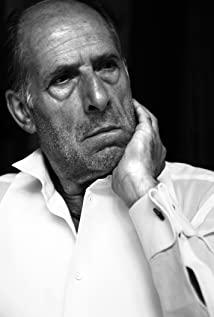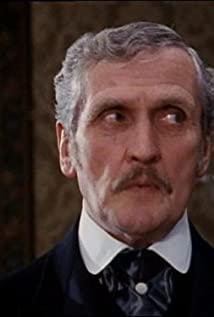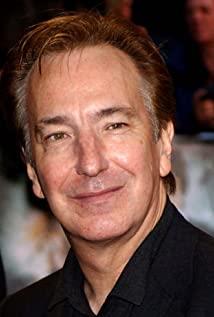Reading the novel "Perfume" made me experience Wilde's emotions, but here every drop of perfume replaces every musical note. In Beijing's somewhat banal spring, this novel of lust, sin, rancidity and, of course, fragrance, shatters the boundaries between reality and history, truth and magic. It was a thrilling and weird reading journey, and I did it with my nose instead of my usual eyes. The strange smell emanating from the novel effectively dragged me into another space. Here, I smelled the taste of Paris in the 18th century, the mellow fragrance of a girl, the perfect combination of sin and beauty, and the hidden in everyone's body, at any time. Desire waiting to explode...
For the protagonist Baptiste Grenouille, the world is nothing but a mixture of scents, and his incredibly sensitive nose is the ruler of this kingdom. In the real world, his life was like a tick; in the world of smell, he was an absolute aristocrat. The only way he can rebel against the world is through the possession of scents.
By chance, Grenouille became obsessed with the body fragrance of a beautiful girl, and the only way to permanently possess this fragrance is to use the exquisite perfume manufacturing technology to firmly bind the girl's breath. In a small town, 25 beautiful girls in a row were killed by sudden blows with sticks. While the whole city is in a suffocating panic, perfume wizard Grenouille hastily collected the scent of the girl who might be disappearing quickly and made it into a perfume. He had no guilt at all, he just knew he needed their scent. The splendid smell exuded by these young girls who have just opened up has reached a suffocating level with the arrival of death...
As a reader, between the series of murders, I was caught in the same dread as the townspeople, but at the same time, I was caught in a strong contradiction. In addition to feeling disgusted and scorned, I had some strange hope for the next murder. My heart is silently acquiescing to Grenouille's approach, because he is doing an unprecedented job, he is creating an unprecedented fragrance and beauty in the history of mankind... And this beauty and fragrance are in the violence and fear. Against the background, it has amazing appeal. The symbiosis of beauty and evil has become an eternal theme in the history of human culture. Roy F. Baumeister analyzed this: "One of the root causes of evil is the constant pursuit of ideals by human beings. When people believe that they are on the side of justice and are committed to improving the world, they often use forceful means as a matter of course. Deal with opposition."
For many aesthetes, beauty is an absolute prerequisite for the existence of this world. Therefore, the absolute pursuit of the ideal of beauty is often transformed into a kind of violence. For Grenouille, he was chasing the supreme fragrance of the world, and so he was given the privilege of despising life. If you look back patiently at the whole of human history, you will surely find that there are so many Grenouilles in it - such as Hitler's slaughter of Jews for a cleaner race... The description in "Perfume" is nothing more than a combination of these situations. Extreme...
Grenouille was finally caught after murdering the 25th teenage girl. At the moment of imminent execution, this bizarre novel finally ushered in its thrilling climax. Grenouille quietly unleashed the deadly aroma he had created as the hateful crowd swarmed the execution ground. Such descriptions begin to appear in the book: "The ten thousand men, women and children gathered together, as weak as little girls conquered by the charm of a lover. A adoring, tender, utterly childish love suddenly struck them. ... they liked him." The next scene is: the aroma turns the execution ground into a grand orgy, men and women, tempted by the aroma, suddenly give up all moral values, and they can't wait to turn the execution ground into a huge carnival. Outdoor indulgence...
And standing by with a mocking smile is our prisoner, Grenouille, who is the director of the play. He finally managed to control the crowd by relying on the scent... and if we look more deeply at this bizarre plot, we will find that the indulgence in the square is nothing but an explosion of human desire. These desires were once deeply covered by civilized upbringing, and perfume only acts as an inducer to induce them.
It's a kind of disgusting novel, and it got me into something weird. While my body is walking the streets of Beijing in the 21st century, my mind stays in Paris in the 18th century. Author Pa Suskind said that Paris at that time was a place full of stench. In such a place, a fictional character named Grenouille creates in addition to shocking perfume, behind every drop of perfume there may be a beautiful girl's life hidden, a strange smell hidden.
This is also a novel about desire. If you look more deeply, perfume is just an inducer of human latent desire. We use perfume, either to hide desire or to seduce desire. That Grenouille is using perfume to fulfill his desire to take revenge on the whole world. I believe that the author wants to use this novel to repeat Freud's conclusion: people's desires may break the shackles of civilization at any time, compared to these hidden desires, how fragile human civilization is. ,
the story effectively teased my enthusiasm. In the filthy subway of Beijing, on the crowded Xidan streets, of course, most importantly, in front of the perfume counters of luxury shopping malls and in the party that exudes a strong smell, the faint Grenoyer kept urging me . He wanted me to capture that beauty and scent, that I could discover the story behind every woman's scent... I was caught up in a nervous lust, indulging in it, miserable and happy.
I think I'm hooked on the scent of perfume, however, I'm lacking in Grenouille. Besides, it's boring real space. In an office building with foul air, I occasionally think of Mauritius Frangipani, an Italian living in the 16th century, who stumbled upon this genius: spices can be dissolved in alcohol. By mixing the olfactory powder with alcohol and thereby transferring the aroma to the volatile liquid, the aroma is freed from the substance and made alive. As Pa Sudes said in "Perfume": "This is an epoch-making achievement. It can be compared with the greatest achievements of mankind, such as writing and geometry."
This sentence is full of ugliness and shock. In the whole text, it acts as the most wonderful note. After I have passionately described to my readers the desires and sins of perfume, I thought I should re-emphasize a key point of perfume—it offers us one of the most succinct means of rebelling against reality. If reading is to pull us into another space through words, perfume allows us to achieve the same effect through his breath. I am so fascinated by the following description, which illustrates the best enjoyment an ordinary person can get through perfume:
The first time perfumery owner Baldini smelled Grenouille's perfume, he saw himself " lying In the arms of a woman with black curly hair, he saw the silhouette of a rose bush on a windowsill, where a night wind blew; he heard the song of the scattered birds, and the music from a tavern on the quay in the distance; Hearing the whispers close to his ear, he heard 'I love you' and found himself bristling with happiness, right now, at this very moment."
View more about Perfume: The Story of a Murderer reviews











